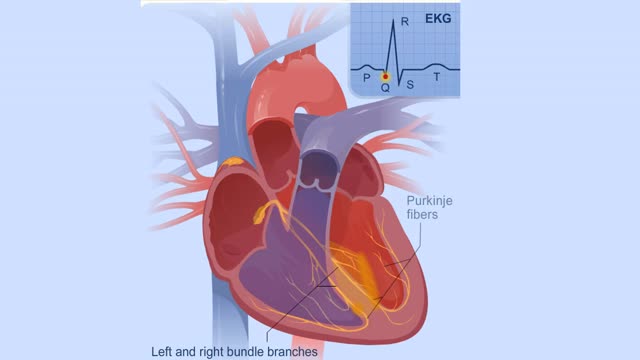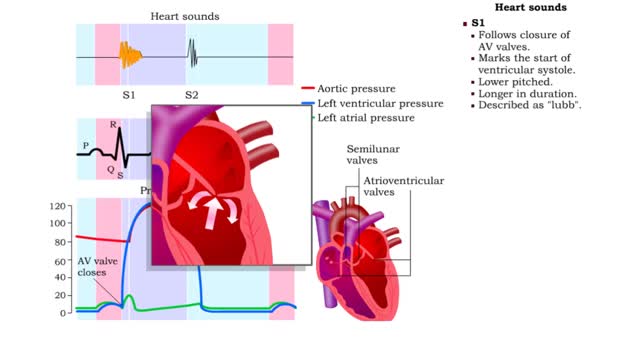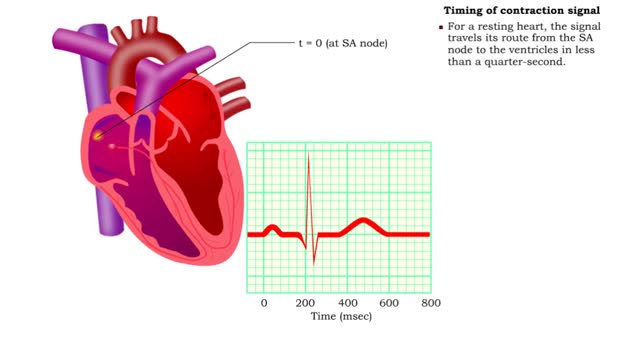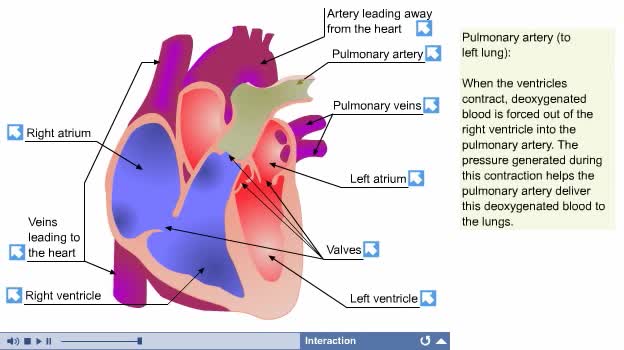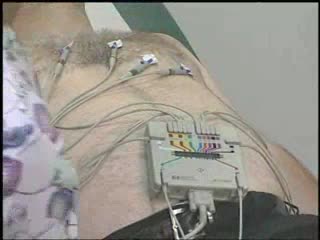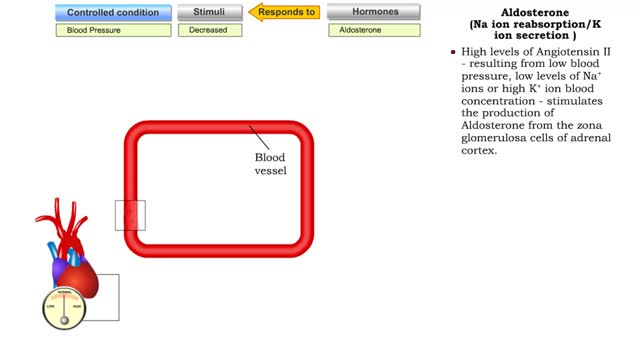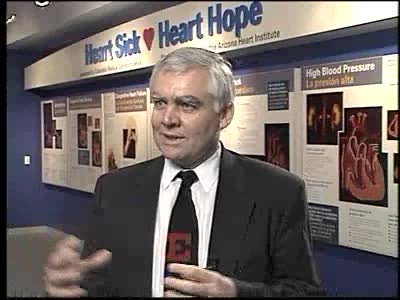Search Results
Results for: 'heart's atria'
Electrical Conduction System of the Heart
By: HWC, Views: 10820
Your heart is a muscle that works continuously, much like a pump. Each beat of your heart is set in motion by an electrical signal from within your heart muscle. The electrical activity is recorded by an electrocardiogram. known as an EKG or ECG. Each beat of your heart begins with an electric...
By: HWC, Views: 11689
During a normal, healthy heartbeat, or what we call a cardiac cycle, the top two chambers of the heart, called the atria, contract simultaneously. Then, as they relax, the bottom two chambers, called the ventricles, contract. This explains what happens during a cardiac cycle, but what it doesn't ...
Coaductile pathway, Timing of contraction signal & Conduction system and ECG
By: HWC, Views: 11889
• When the system is healthy, the signal to contract the entire conduction system originates in the SA node - known as the heart's pacemaker. • The SA node triggers contraction because it depolarizes at a faster rate than other parts of the conduction system. • The wave of excitation fr...
By: Administrator, Views: 14816
Circulation of blood through the chambers of the heart Septum divides heart into the right and left heart. Each side contains an upper and lower chamber: Atria, or upper chambers, receive blood. Ventricles, or lower chambers, pump blood. Valves control intake and outflow of blood in chamber...
By: Administrator, Views: 14514
An electrocardiogram (ECG or EKG) is a test that checks how your heart is functioning by measuring the electrical activity of the heart. With each heartbeat, an electrical impulse (or wave) travels through your heart. This wave causes the muscle to squeeze and pump blood from the heart. Sinoat...
By: Administrator, Views: 15063
A heart attack occurs when an artery supplying your heart with blood and oxygen becomes blocked. Fatty deposits build up over time, forming plaques in your heart's arteries. If a plaque ruptures, a blood clot can form and block your arteries, causing a heart attack.
Atrial natriuretic peptide (vasodilation) & Aldosterone
By: HWC, Views: 11461
• Certain situations will cause the body's stress level to rise. • increased blood pressure will stretch the atria of the heart, stimulating the secretion of atria natriuretic peptide (MP). • ANP causes muscle cells in blood vessels to relax. • Blood pressure is lowered as a result ...
By: Administrator, Views: 15019
Coronary heart disease accounted for 23.5 percent of all deaths in the U.S. in 2008. According to the Centers for Disease Control and Prevention (CDC), about 735,000 Americans have a heart attack each year. Warning signs and symptoms include chest pain or discomfort and shortness of breath. Ex...
By: Administrator, Views: 14438
Everything you need to know about your heart
Advertisement



